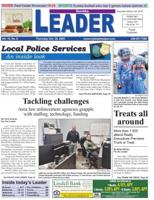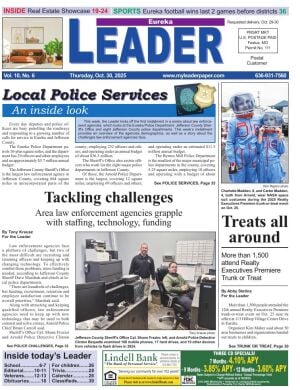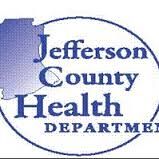The Jefferson County Health Department is asking voters on April 5 for a property tax increase of 3.49 cents per $100 of assessed valuation to hire staff, replace vehicles, upgrade equipment and open a satellite office in the Hwy. 30 corridor.
The Health Department’s current tax rate is 7.51 cents. If the increase is approved, the levy will rise to 11 cents, and the owners of a home the Assessor’s Office values at $100,000 would pay an additional $6.63 a year in Health Department real estate taxes, going from $14.27 to $20.90 annually.
The measure requires a simple majority for approval.
Health Department Director Kelley Vollmar said passing the tax is vital.
“The goal of public health is prevention. Jefferson County is growing so fast, we can’t keep up,” she said.
“We have cut and eliminated programs and positions as far as we can. The resources the department has can no longer meet the health needs of Jefferson County.”
Currently, the county compares poorly to others in the state when it comes to local funding for health needs, according to a report Vollmar prepared.
There are 115 local public health agencies in Missouri, and 90 of those have a health board and are funded by a health tax, the report said.
Of those 90, Jefferson County’s tax rate ranks 85th. The average tax rate for a health department is 14 cents per $100 of assessed valuation, the report said.
The need
Since 2008, the Health Department has cut 12 full-time and 10 part-time positions through attrition, Vollmar’s report said, hitting the nursing, health education and emergency response divisions hardest.
The Health Department also has not replaced 10 vehicles that are now inoperable, reducing its fleet of 30 vehicles to 20 today. Nine of the remaining vehicles are more than 10 years old and five of the nine are more than 15 years old, the report said.
In addition, the department needs to bolster its funding for mosquito sprayers after two sprayers purchased used in 1993 can no longer be repaired. The department had to dip into its reserves to purchase a sprayer last year.
The department has not been able to update radio equipment from UHF to the current standard of 800 mhz, and without the upgrade, the Health Department will not have radio communication with other first responders in the event of an emergency. Emergency response safety gear also has not been replaced due to cost.
Vollmar said because the Health Department is always financially strapped, responding to emergencies is difficult.
“Our ability to respond to crises is an ongoing challenge because the funds come, if they come, after the disaster,” she said.
If approved
The increase would give the Health Department an estimated $1,066,819 in additional revenue, about a 25 percent boost to its budget, which in 2016 is $4,171,368.
An estimated $2,255,244 of that budget comes from property taxes. Other sources of revenue include program fees, state contracts, insurance billing and Medicare and Medicaid.
If voters approve the measure, Vollmar said plans for the additional revenue include:
■ Opening offices five days a week instead of four days with additional staffing and more community-based prevention services such as school-based immunization clinics, onsite worksite wellness programs and increased restaurant inspections to meet federal Food and Drug Administration standards.
■ Opening a satellite office in the Hwy. 30 corridor in 2017.
■ Hire 11 additional staff members.
■ Begin to replace outdated equipment including emergency response radios, personal protective equipment for staff and mosquito sprayers.
■ Replace nine vehicles that are more than 10 years old and add an additional five vehicles to the department’s fleet.
■ Create an investment portfolio according to state guidelines to build additional revenue from reserve funds.
Vollmar said residents may not be aware of the Health Department’s role in the community.
“Public health impacts every resident every day,” she said. “We truly touch their lives. We affect the water they drink, the food they eat. We work to keep day cares safe and their workers trained. Investing in public health is investing in a healthy future for residents and their children.”
The Jefferson County Health Department was established in 1949 with an initial tax rate of 10 cents per $100 assessed valuation, and the tax has not been increased since then.
The rate is less than 10 cents now because the state’s Hancock Amendment, adopted by Missouri voters in 1980, limits the amount of new revenue taxing entities can receive when assessments rise, by forcing levies to be lowered.
The Health Department unsuccessfully sought a 15-cent levy increase in 1992, a 9.31-cent increase in 2007 and a 9-cent increase in 2008.
The department inspects restaurants, provides environmental services, a wellness clinic, a family planning clinic and water testing. Also, it facilitates immunizations, dental services, emergency preparedness and services for special-needs children and adults.
In addition, the Health Department tracks communicable diseases and provides education programming to schools and adults to help prevent chronic and environmental diseases and works to identify and address other significant health issues in the community.
The department is supervised by a five-member elected board.



